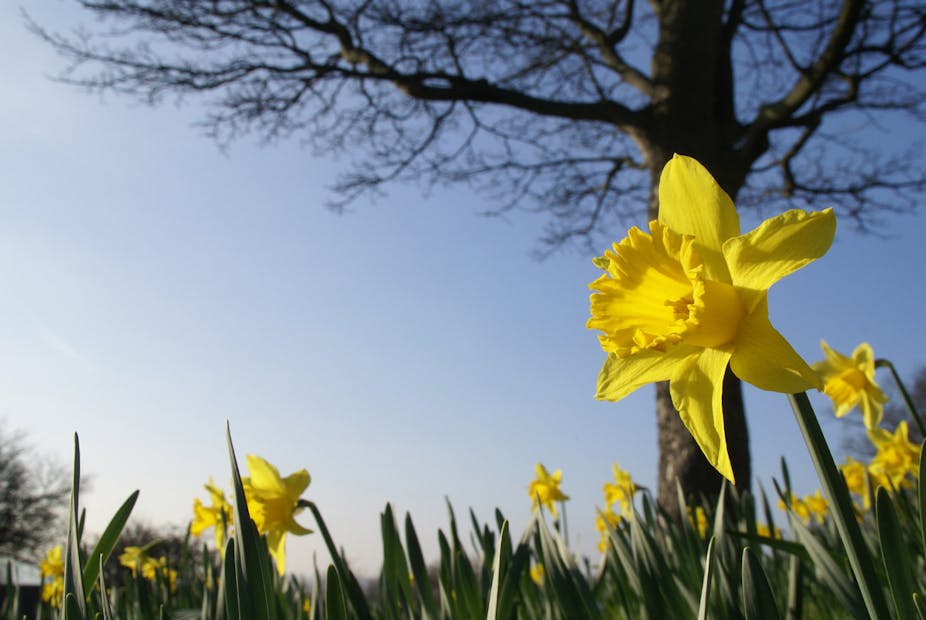Is there a poem buried deep in the recesses of your memory? Earlier this month, on the UK’s National Poetry Day, we launched a nationwide poetry survey inviting people to tell us a poem they know by heart, when and why they learned it, and what it means for them. The survey is part of the Poetry and Memory Project, which aims to investigate the experience of having a poem in the memory – and the relationships between memorisation, recitation and understanding.
Since the launch, the online survey has already attracted more than 300 responses from people of all ages from across the UK – and further responses to the print version are beginning to arrive by post. So far, although certain poets – Keats, Shakespeare and Larkin, for example – are proving popular, there’s an extremely wide range of poetry represented.

Had we been doing this research 100 or even 50 years ago, the results would doubtless have been more predictable. Between 1870 and 1944, the memorisation and recitation of poetry was prescribed on the school curriculum. And until 1905 the performance of poems was required for the school inspection on which the institution’s funding depended. Children memorised certain “staple poems”, such as Casabianca by Felicia Hemans and Thomas Gray’s Elegy Written in a Country Churchyard – which, as US English professor Catherine Robson records in her fascinating study, had lasting effects on those who learned them.
Backlash against rote learning
This also created a shared poetic repertoire which may well have been instrumental in poetry becoming the most vital form in which experiences were memorialised during World War I. But over the course of the 20th century these practices were gradually eradicated by theories of child development seen as incompatible with rote-learning, and by a growing emphasis in literary pedagogy on “close reading” – the skill required for practical criticism that requires detailed, sustained attention to all aspects of the text.
Classroom activities, particularly at secondary level, now concentrate on the analysis of poems as textual constructs, whilst poetry learning and performance have all but disappeared. This stands in contrast to the situation in many other European countries, where both are still prescribed by national curricula. In the US, where it is no longer a curriculum requirement, poetry recital is still viewed positively and not troubled by misgivings over rote learning.
Concerns over poetry teaching
Poetry teaching, meanwhile, has become a matter of some concern, with Ofsted reporting that it is the worst-taught of all literary forms. While this is undoubtedly a complex problem, it seems reasonable to ask whether this crisis of confidence might not be rooted in the fact that poetry has been severed from the source of its existence – rather as if music were being taught only from the score.
If, as most poets and many poetry scholars insist, poems communicate meanings fundamentally through sound and poetry is essentially an embodied art form, then to wholly replace performance of a poem with talk about that poem must surely be to lose something vital. One underlying aim of our study is therefore to open debate on whether educational practices have unwittingly shifted attention too far from poetry’s most significant way of engaging readers.
Reviving interest
The memorisation and recitation of poetry was reinstated on the curriculum by Michael Gove, the then secretary of state for education, in the new primary school curriculum which came into force in September 2013. And there are some signs of reviving interest in memorising and reciting poetry both within and outside the education system.
Yet there is almost no research on how they might affect our understanding or appreciation of poetry or be incorporated into teaching practice. Understandably, given its history, attitudes towards the memorisation of poetry among teachers are very mixed and many question its value.
Shifts in memory
Questions about poetry and memory can also be located within the context of the enormous changes being wrought by technology to the ways in which we perceive, think and interact with the world, including the “outsourcing” of human memory to digital devices. Now that we can summon any of a thousand poems onto a smartphone or tablet in seconds, the idea of keeping a sonnet in our head might, on the face of it, seem rather pointless.
Our study is therefore likely to have implications not only for pedagogical policy and practice, but also for the discourse about how locations of knowledge and the ways in which “embodied knowledge” – things that our bodies “know” and that deeply affect our interaction with the world – operates in the lives of individuals and society.
Our interdisciplinary investigation will eventually integrate data collected through surveys and interviews, as well as literary and documentary analysis, to address questions within three main strands of enquiry. These include the relationship between the memorised poem and the individual and the part memorised poetry might play in making sense of experience and shaping emotion. And now that the generations that learned poetry are dwindling, we aim to discover what poems do remain in the national consciousness and to explore current social and cultural uses of learned poetry.

